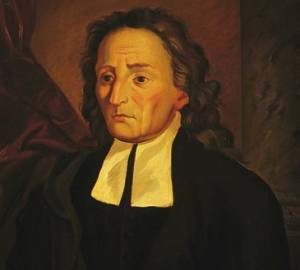Giambattista Vico and the E-Learner
Despite the fact Vico died more than 250 years ago, Vico's ideas seem fresher and more relevant than ever. Whenever there are large changes in our world, our societies, the global order, or technology, Vico’s ideas about knowledge, history, and meaning-making seem more vital and alive than ever. Learning Should Be Interdisciplinary
Believes that the best way to know something is to approach it in an interdisciplinary way. To look at things through a single discipline or approach leads to a kind of blindness. History Is Cyclical
Once you start looking at things in an interdisciplinary way, you can perceive patterns that were never detectible before. Using that approach, Vico proposed that history is cyclical, and that the reason for it was a complex set of causes and contributing factors. The idea that the unfolding of the history of man takes a certain pattern was nothing new. Ancient Greek and Roman thinkers held that there was once a “golden age” and everything went into decline after that. Jewish and Christian thinkers often looked at history as apocalyptic; which is to say that it was more or less inevitable that man's evil nature would eventually overtake human endeavor, resulting in alienation from all protection, and the ultimate destruction of an essentially thoroughly corrupt universe
However, Vico believed that the problem with the Ancient Greek and Roman view was that it overlooked specific causes and effects, and so was not very useful for fine-tuned prediction or analysis. For Vico, the key was to look for look for origins, seek causal relationships. Phenomena can be known only through their origins and through causes (“per caussas”), he stated in New Science.
For the student of history and humanity, one must build analytical skills and be able to look at the contributing political events, economic pressures, wars, weather, natural disasters, prevailing religious and cultural beliefs, and the structure of society. Only after a careful interdisciplinary analysis can one start to create a complex, yet very useful, model.
But, how does one determine whether or not the theoretical model has any usefulness or credibility? According to Vico, reality and truth should be coherent. They should fit well together. If something does not have a solid base, and can't be supported by multiple viable explanations, then it's probably weak. Interdisciplinary Analysis Leads to New Knowledge
Vico wrote that when one engages in a complex interdisciplinary analysis, the results are new knowledge. Does the person make the knowledge, or is it a part of the analysis?
For Vico, both are important. It is important for individuals to collaborate and interact with each other and with what has gone on in the past. How We Make Meaning from Chaos
We set down the rules for making meaning in the areas of philosophy and language.
Philosophy aims at articulating the universal forms of intelligibility common to all experience. How can we tell what is valuable? Vico says it is important to look for the universally true.
Language: a storehouse of customs, a “mental dictionary” used by past, present, and future generations. There are multiple truths embedded in language; cultural, philosophical, existential – we can learn a great deal by reading each other’s words very closely.
Vico investigates metaphor and the origins of language. Metaphors have embedded causal chains – once you grasp the connection between the image and the meaning(s), you've embarked on a journey of meaning – what are they to us?
Language articulates the agreed-upon rules of the communication, by which philosophy is made possible. Language, according to Vico, consists of judgment without inner reflection.
For e-learners, the quest for the best way for organizing an overwhelming amount of information is something we can do by creating a mental architecture for it, and developing a strategy for creating categories where we can file away information. History Holds the Key to Understanding Ourselves and the World
History represents and illustrates the ideal and the eternal. Nations evolve – there is something to be learned in looking at how they approximate the ideal, and how their movements, trajectories are part of the eternal, the timeless, the inescapable
Vico discusses the stages of social, civil, and political order. We can learn from his analysis.
History is inescapable. Language is inescapable. And both are more or less unknowable, or, better said, ineffable and inexpressible.
Smith Nash, Susan. “Vico and the eLearner.”
